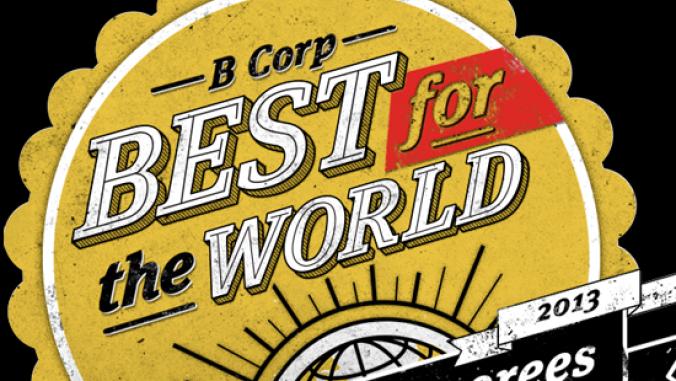EPEAT expands with first ever CEO
<p>The organization behind the world-spanning certification for environmentally and socially responsible computers has hired Robert Frisbee as its first CEO, and adds Mike Biddle of MBA Polymers, Amy Knight of Hasbro, Inc., and Carl Smith of Call2Recycle to its board.</p>

We cover EPEAT -- the Electronic Product Environmental Assessment Tool -- fairly often on GreenBiz, but there's good reason: In addition to setting a high bar on a broad range of environmental issues -- from packaging to end-of-life -- the label has been wildly successful, certifying thousands of products in the U.S. alone over the last five years.
The Green Electronics Council, the group that administers EPEAT, is announcing today a further expansion: The first-ever CEO of EPEAT will be Robert Frisbee, and EPEAT is adding three new board members as well.
 Frisbee brings to EPEAT not just a successful career as a serial entrepreneur in the tech space, founding Pacific Star Communications, FirstPoint Communications and Electric Lightwave, but also most recently as the Director of Development at the Oregon Sustainability Center, where he brokered creative public and private sector partnerships for an ambitious green building project.
Frisbee brings to EPEAT not just a successful career as a serial entrepreneur in the tech space, founding Pacific Star Communications, FirstPoint Communications and Electric Lightwave, but also most recently as the Director of Development at the Oregon Sustainability Center, where he brokered creative public and private sector partnerships for an ambitious green building project.
Though Frisbee was unavailable for an interview prior to the announcement, I spoke with Christine Ervin, an EPEAT board member who's been serving as interim CEO, about what Frisbee's hire means for the future of EPEAT, and what his mandate is.
"His top-level goal is scaling up in a solid way," Ervin explained. "Part of it is expanding EPEAT's global reach through the multiple certification [process]; as well as moving into new, additional products; as well as updating the EPEAT [certifications], because they're a little long in the tooth. [Each of those] is a huge project on its own."
Among the projects that will continue to expand EPEAT's breadth and depth that Ervin mentioned are forthcoming standards for televisions and imaging equipment, each of which is a massive undertaking that will bring EPEAT into much greater contact with new audiences. Those standards are in their final stages of approval through the IEEE standards process and will likely be finalized this year.
And Frisbee will also take on a refresh of the original EPEAT standard for computer products, one that, at five years old, is decidedly long in the tooth, as Ervin mentioned. Other standards in the green IT space, notably Energy Star, undergo revisions -- and the subsequent raising of the bar to qualify for certification -- around every 18 months. So EPEAT is definitely due for an update.
But beyond keeping the existing and forthcoming standards current, Frisbee will also hold the reins of the continuing expansion of EPEAT into global markets, as well as shaping the discussion of just what shape that expansion will take.
"We want to start exploring the broader realm of green electronics; certifications is just one part of it," Ervin said. "[We also need to define] the other priorities in terms of research, education and outreach, and what role can we play in furthering that."
Along with the announcement of the new CEO hire, EPEAT has also added three new board members to its roster. Announced today are the addition of Mike Biddle of MBA Polymers, Amy Knight of Hasbro and Carl Smith of Call2Recycle to its board. Each brings to the organization broad experience in not just the tech sector but to sustainability issues within tech.
"The EPEAT board has gone from being an Oregon-based board, as EPEAT was founded and growing, to now becoming more of an international one," Ervin said. "These leadership changes reflect the state of the electronics market -- EPEAT has attracted world-class talent because there's so much awareness of the stakes involved and the market potential."
And although EPEAT has seen rapid ascension in the uptake of its standards and the underlying sustainability ideas of its 23 mandatory and 28 optional criteria, the consensus-based process that it undertakes to update and create new standards is not a quick one. But Ervin said that EPEAT's impacts show that progress is happening, even if slower than everyone would like.
"You keep your eye on the end game," she said, "and the end game is huge."





